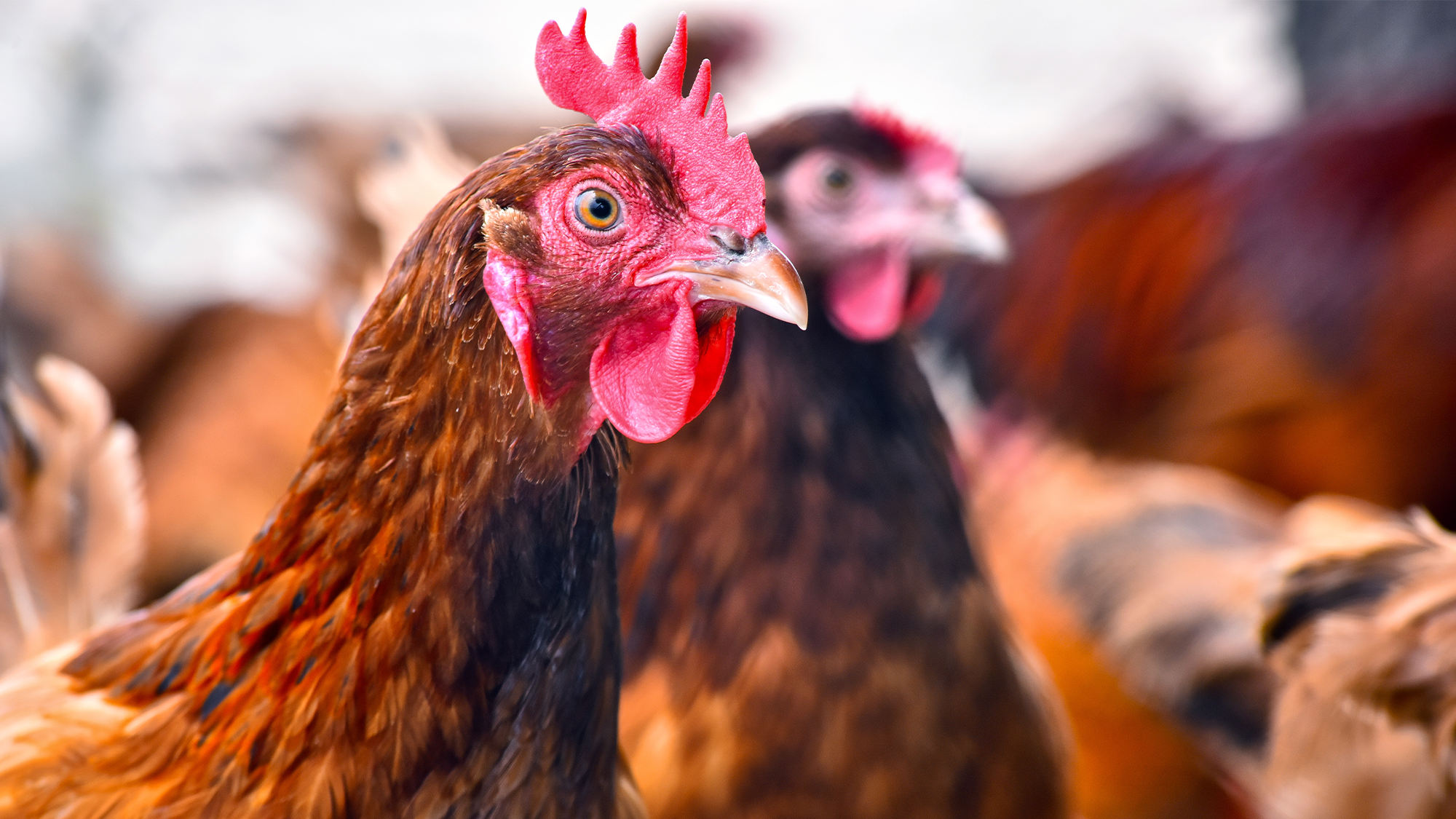

The threat of avian influenza (H5N1) continues to be a serious health and economic issue. As of September, almost 60 million birds have been affected in the United States since the latest outbreak began in January 2022. There are currently 839 known H5N1 outbreaks around the world.
[Related: Thriving baby California condor is a ray of hope for the unique species.]
Earlier this month, France began Europe’s only mass-vaccination campaign against avian influenza. The country plans to vaccinate roughly 64 million ducks at 2,700 farms over the next year as an effort to end mass culls. Drastic actions like the culls cost the poultry industry millions of dollars every year.
“Vaccination should mean we only face individual cases, avoiding the tidal waves sweeping through farms,” poultry chief at the SNGTV farm vets’ association Jocelyn Marguerie told DW News.
To reduce the risk of more Highly Pathogenic Avian Influenza (HPAI) spreading in the US, the Department of Agriculture’s Animal and Plant Health Inspection Service has barred poultry imports from France and its European Union trading partners including Iceland, Switzerland, Liechtenstein, and Norway. The ban covers live ducks, duck eggs, and unmitigated/untreated duck products in addition to poultry products and is due to their recent vaccination campaign.
According to a press release, the agency is concerned that the vaccines may mask that the virus is already circulating in poultry, as the vaccinated birds may not show any signs of infection and could lead to the contaminated animals being brought into the US.
In France, the vaccine will be given in two doses and is obligatory for ducklings as young as 10 days old being raised on farms that have more than 250 birds. It will cost close to 100 million euros ($105 million) and 85 percent of the cost will reportedly be financed by the French government.
“Typically, animal vaccines in the US take approximately 3 years to develop and get FDA approval. Even though vaccination reduces mortality significantly, there is still concern that vaccinated birds can become infected and shed the virus,” Michelle Hawkins, an ABVP certified veterinarian at the University of California, Davis and the director of the California Raptor Center tells PopSci. “This is the main concern regarding France authorizing a vaccine. Ducks often carry avian influenza viruses without showing any clinical signs when infected.”
Hawkins also cited a concern about how quickly HPAI can mutate which could potentially reduce the vaccine’s efficacy.
[Related: One way to fight off bird flu: extra-CRISPRed chicken.]
Recently, commercial flocks have been culled in South Africa to stop the spread and the virus which has been detected in at least 67 countries. It has also been found in domestic cats in Poland and has even jumped from wild birds into seals on the East and West Coasts of the US.
While vaccination is not enough to completely stop the disease yet, the jabs are a tool in fighting it. The Department of Agriculture began evaluating four HPAI vaccine candidates for animals and began some trials in April 2023. Other countries including Egypt, China, Mexico, and Vietnam have been vaccinating flocks for years.
Currently, the risk of avian flu to humans is low, with only one reported human case of this virus in the US. There are trials underway of vaccines for humans if the virus mutates to become more of a threat to people. Researchers in the United Kingdom have also isolated a gene called BTN3A3 that could keep the virus from infecting humans.
In the meantime, vigilance from bird owners and other protective measures including avoiding contact with wild birds and reporting dead birds to the proper authorities remain crucial.
“It is critical that bird owners look at what they can do immediately to protect their flocks– now,” says Hawkins.
